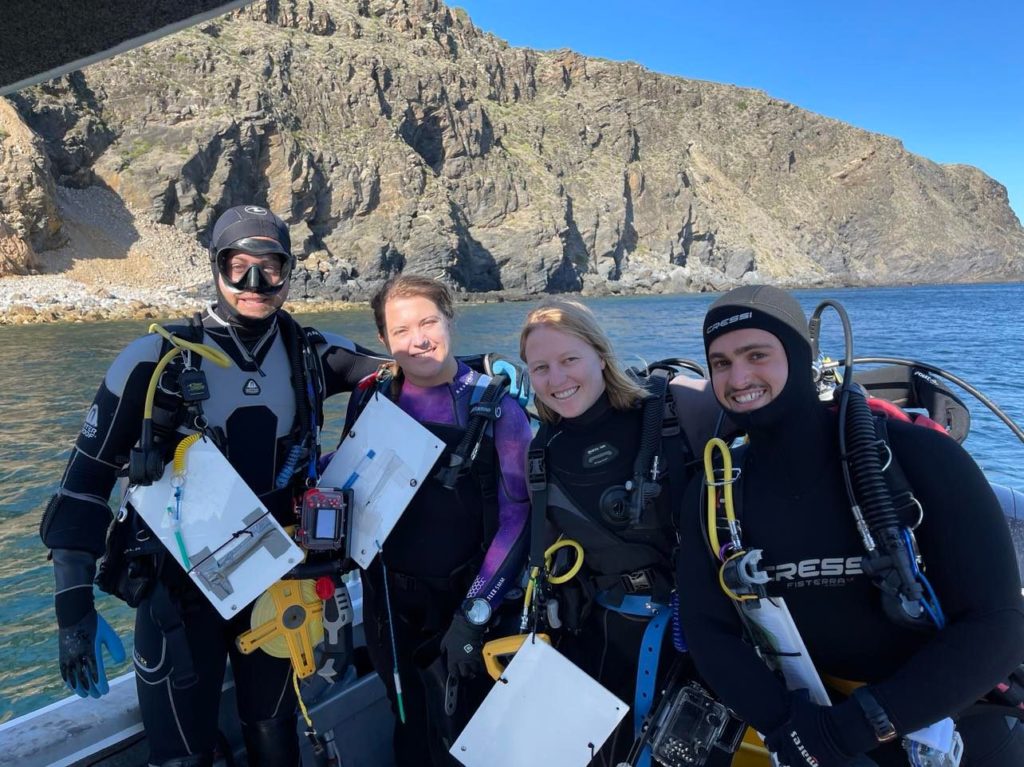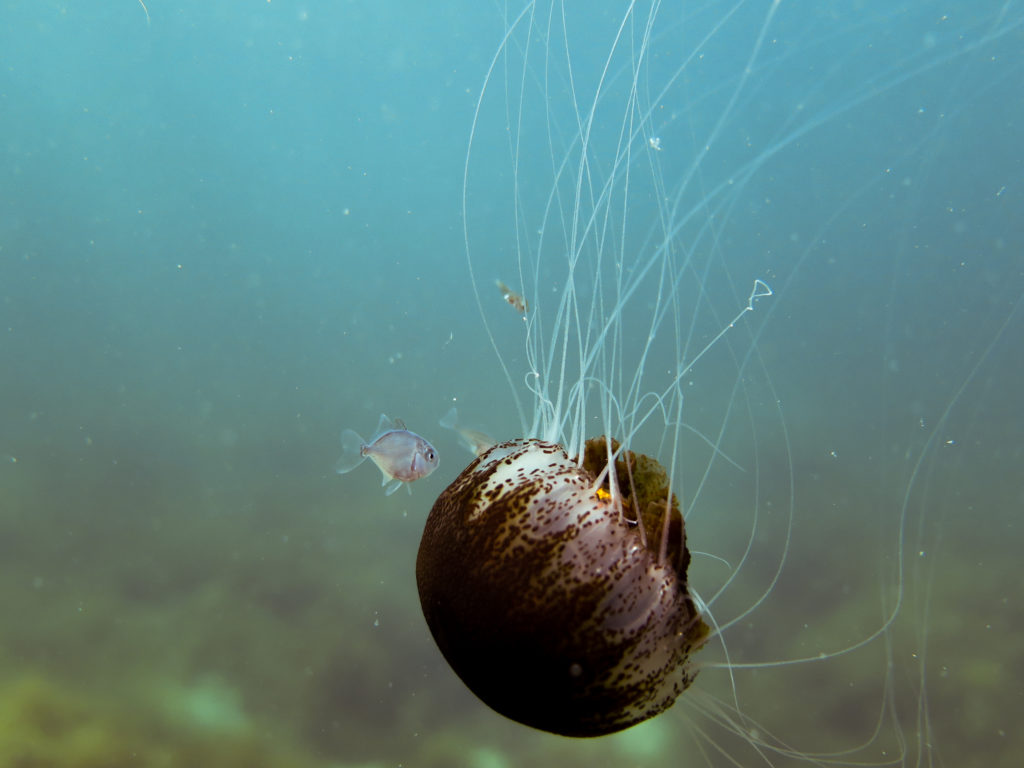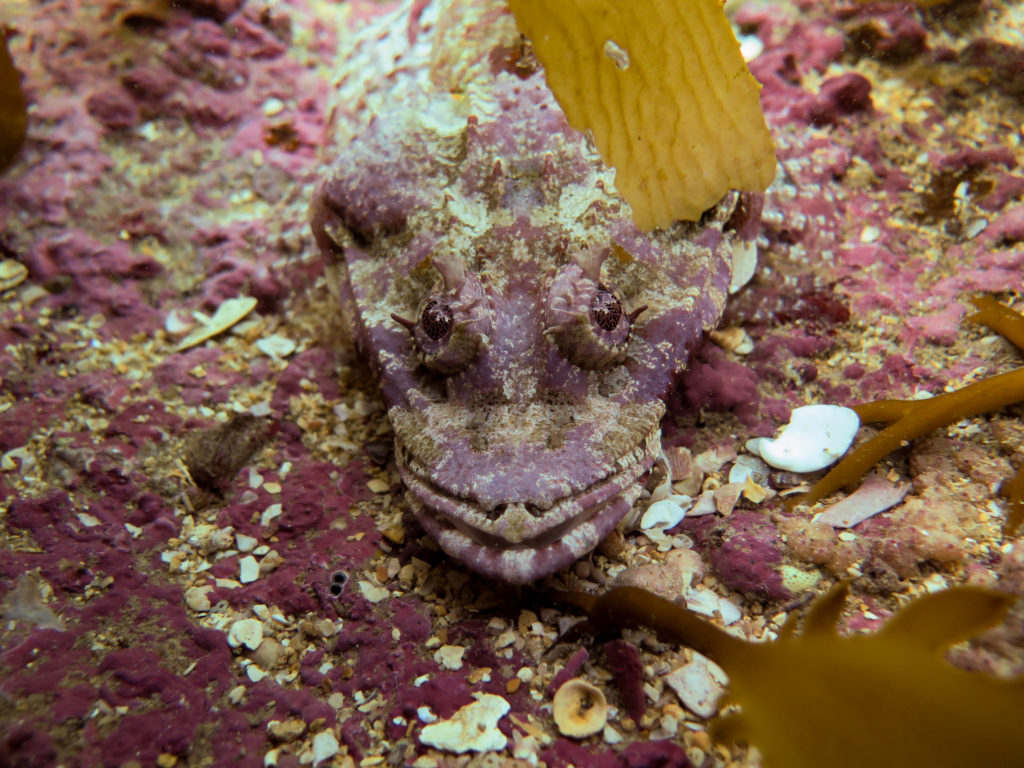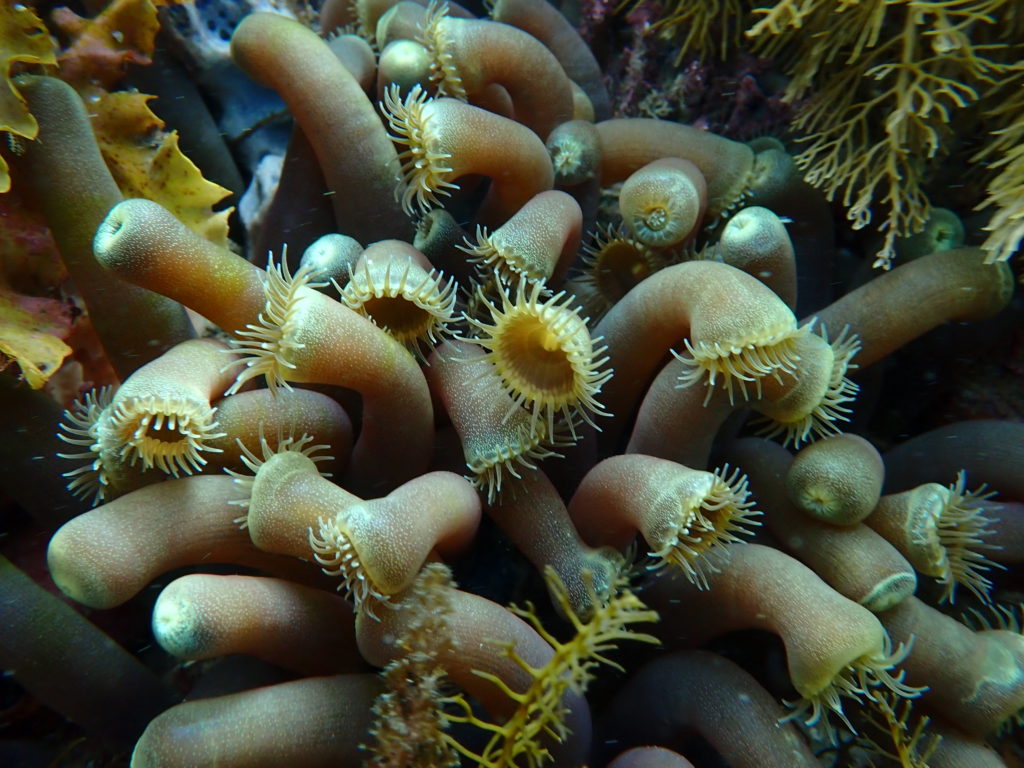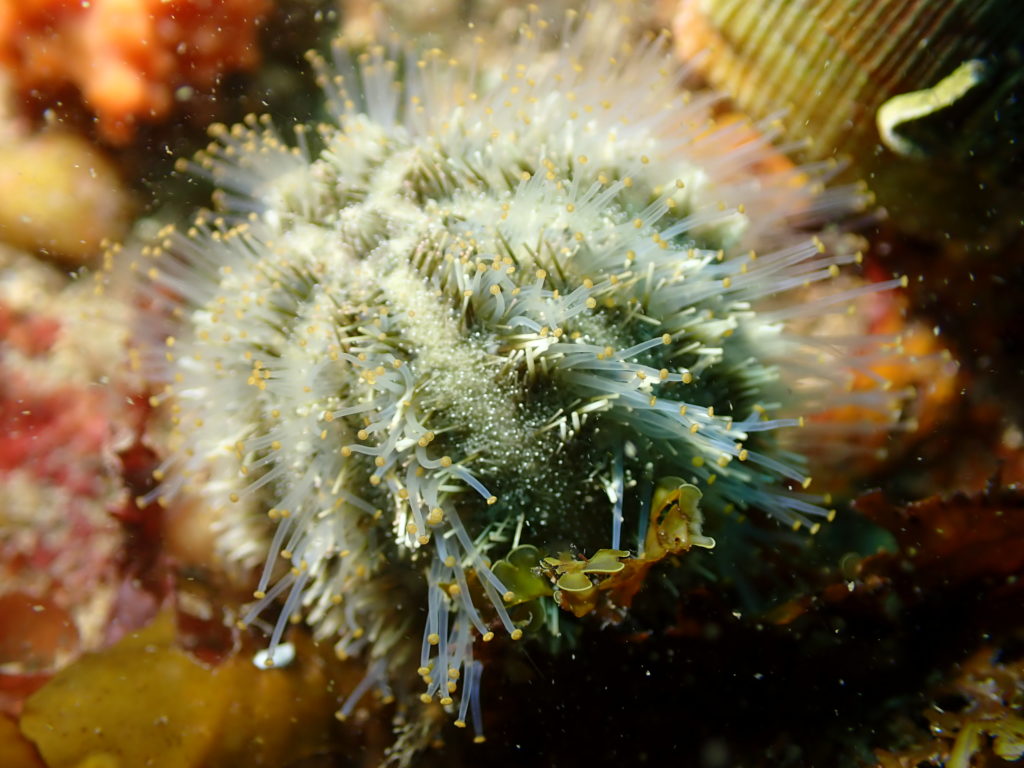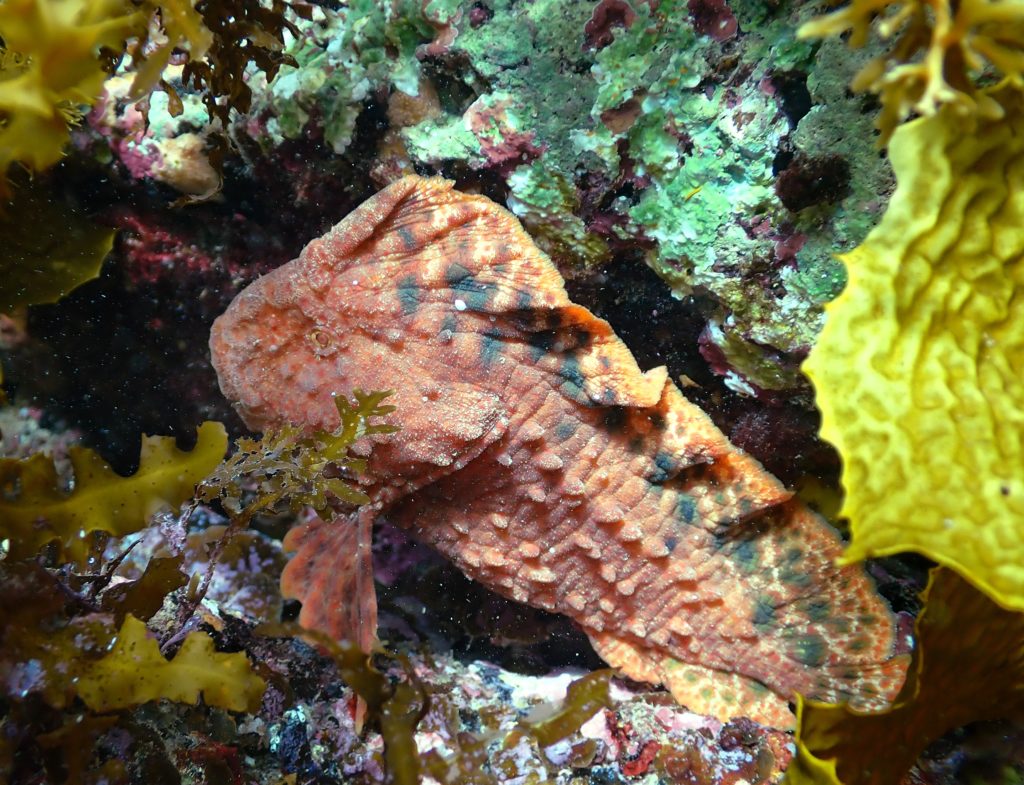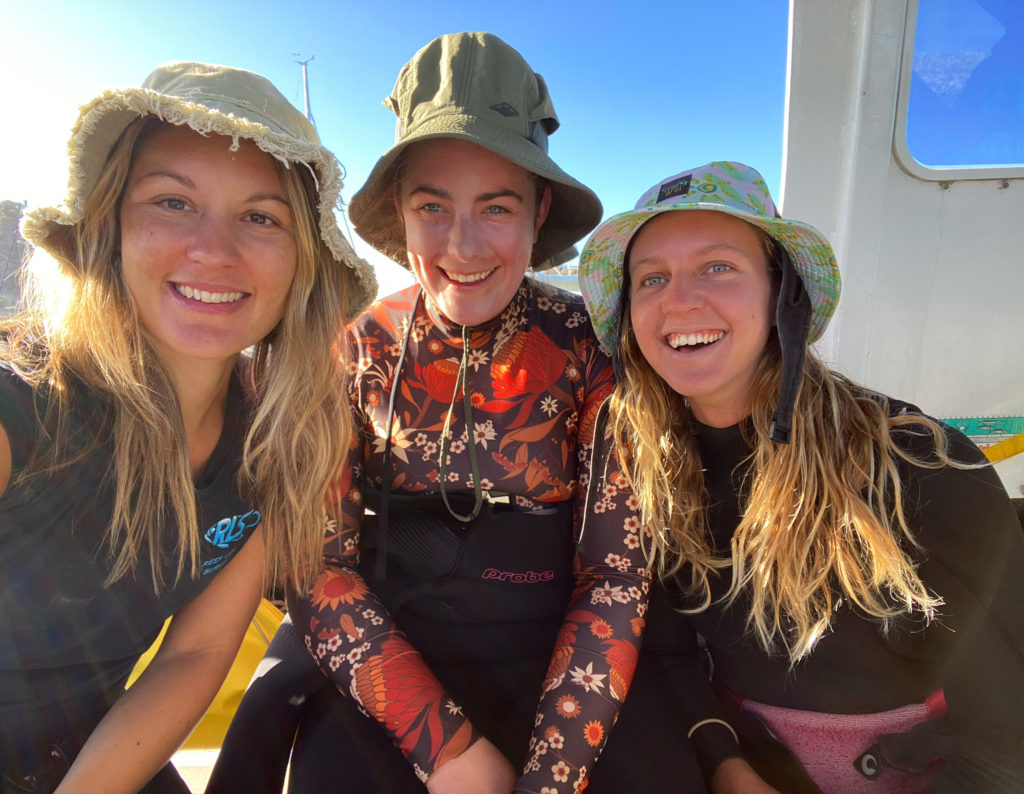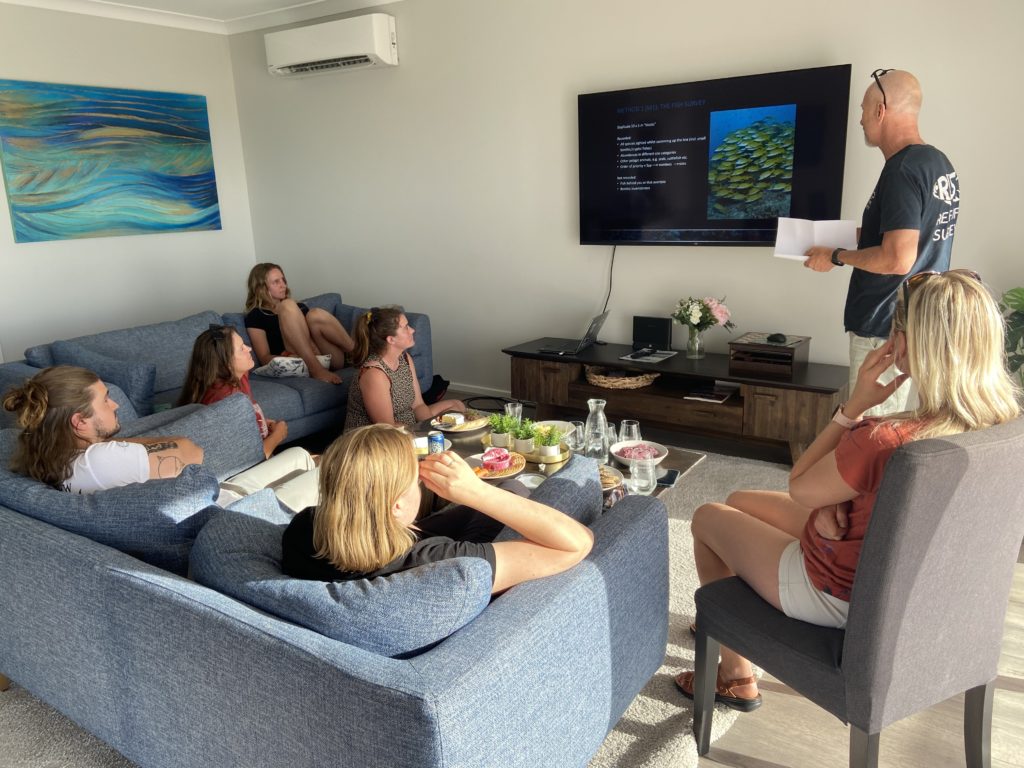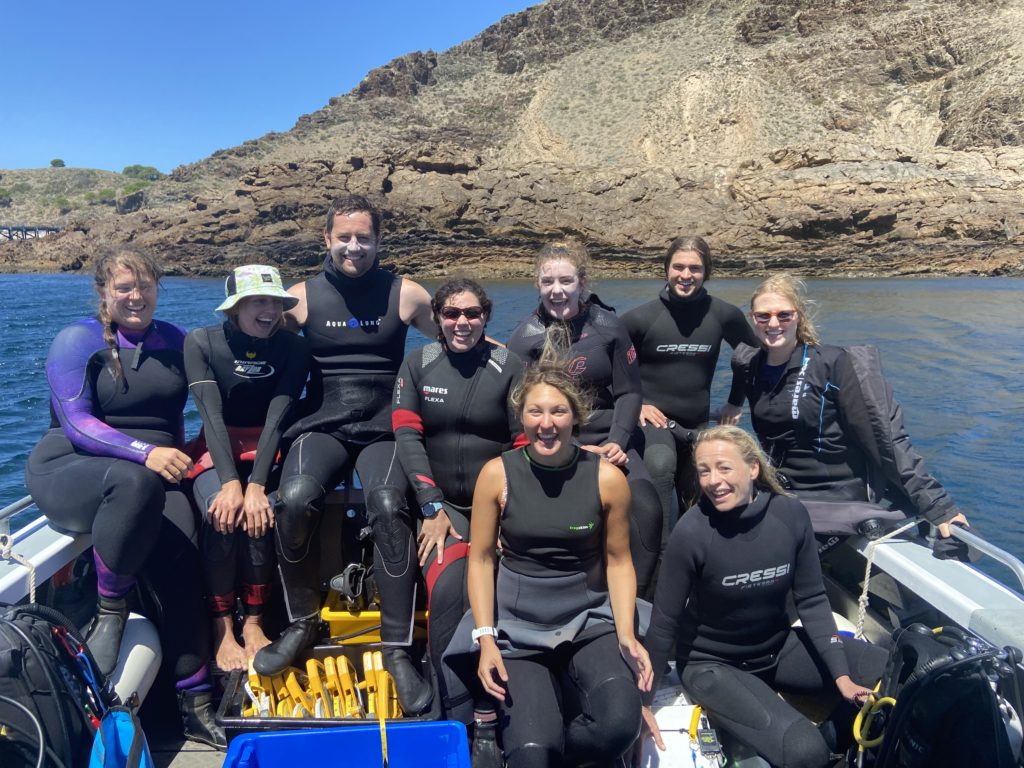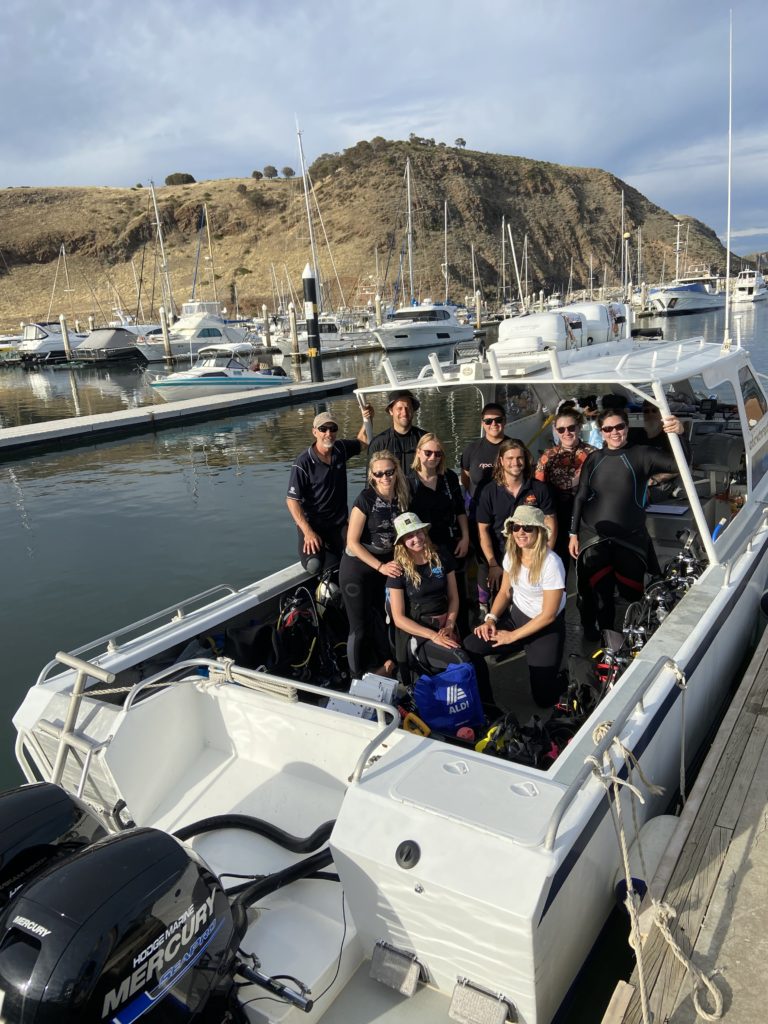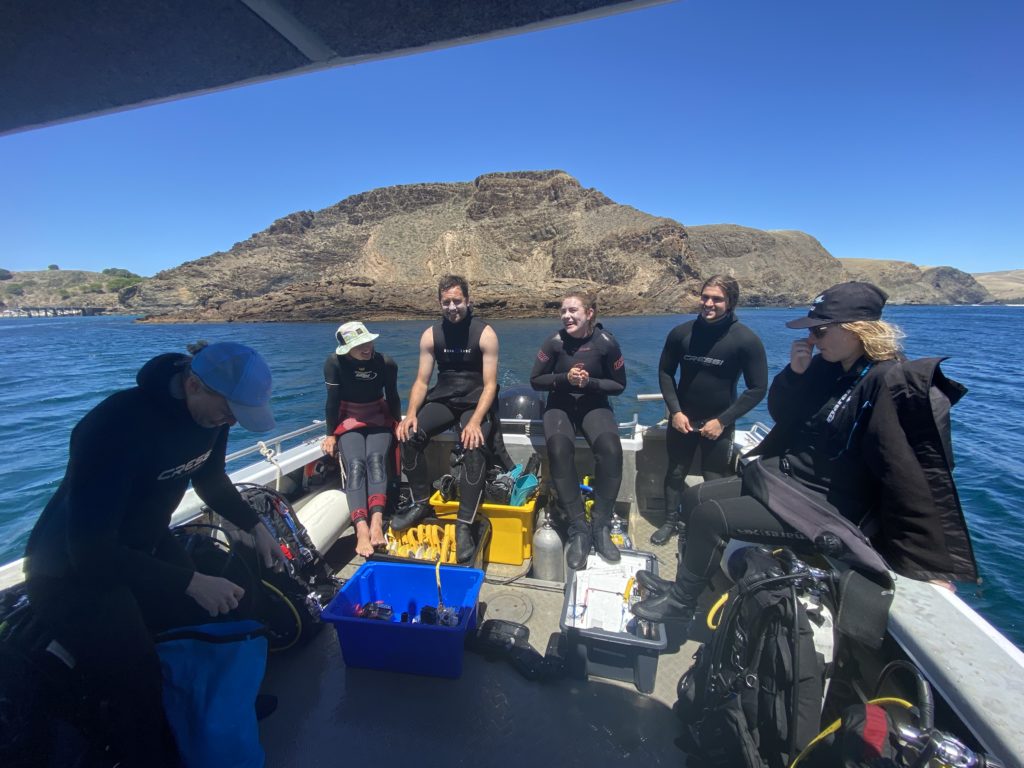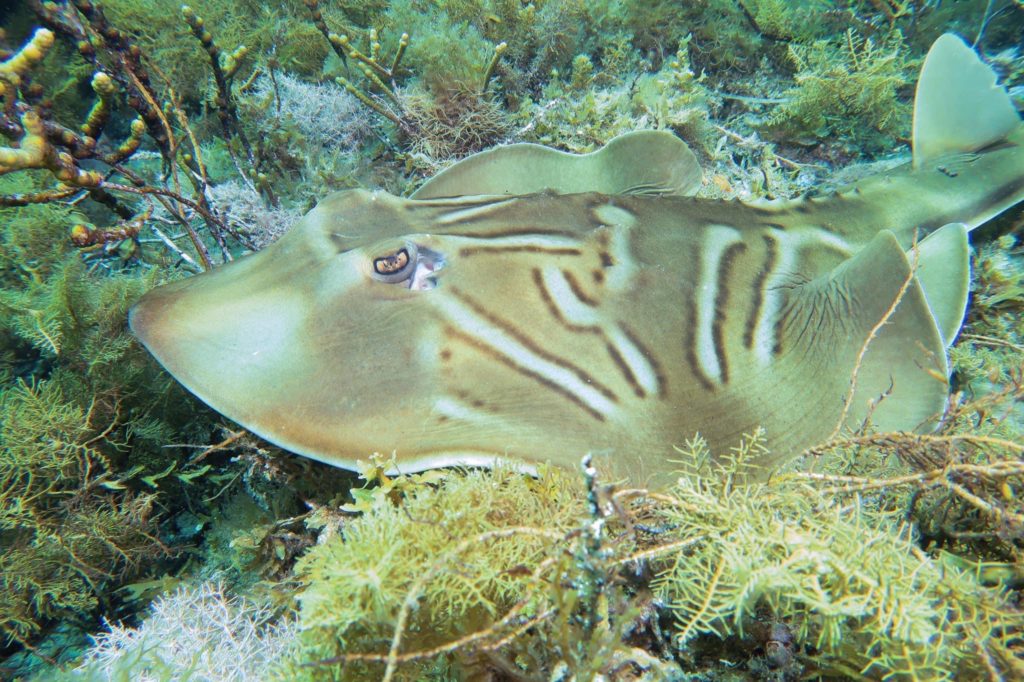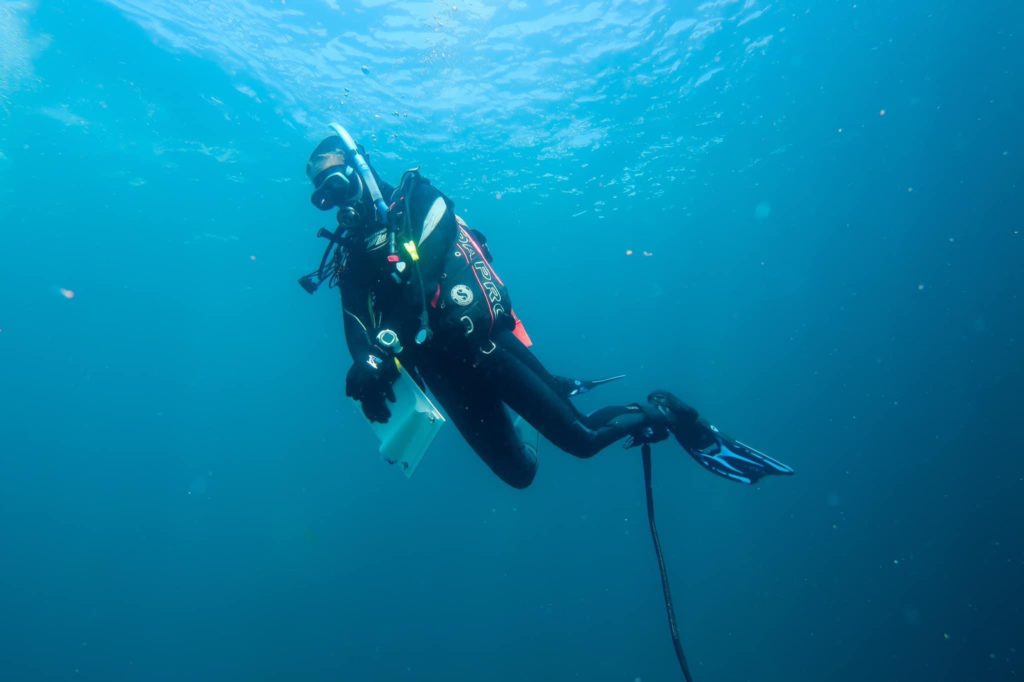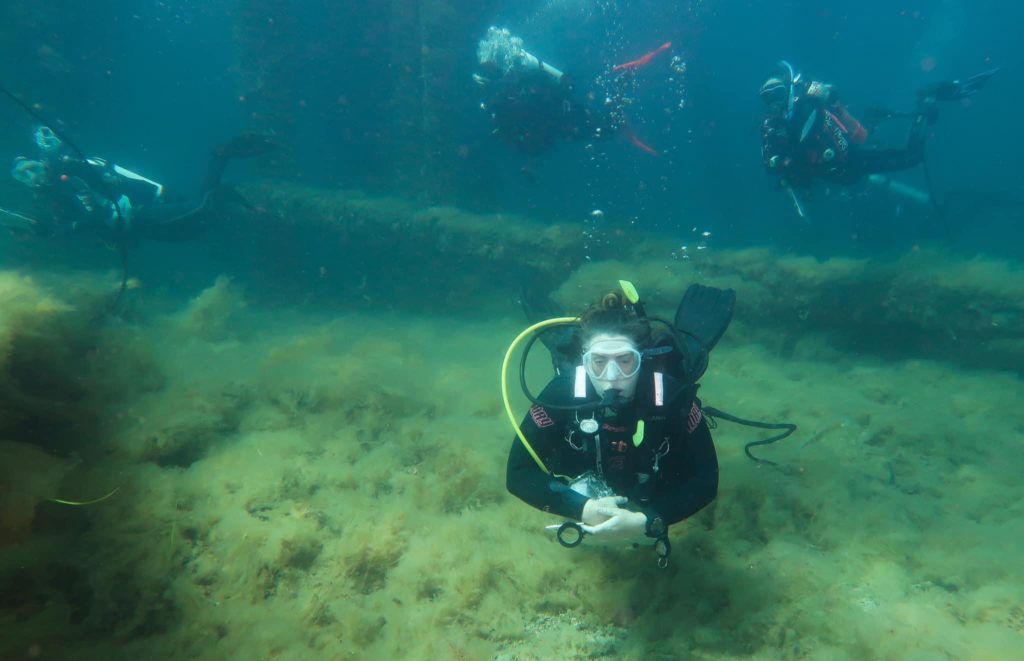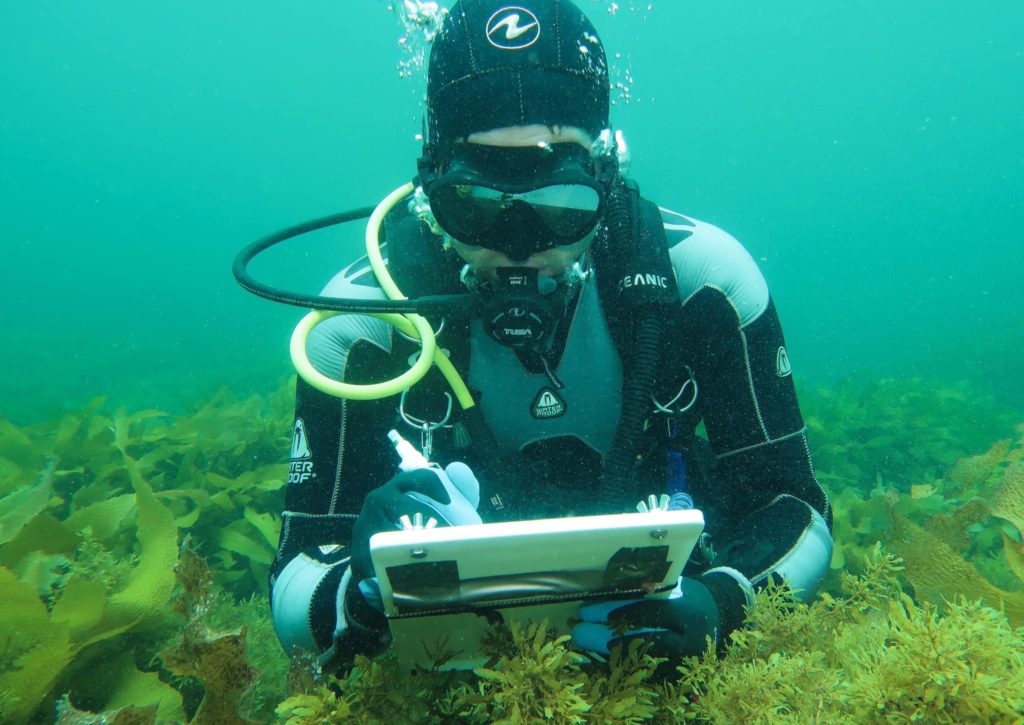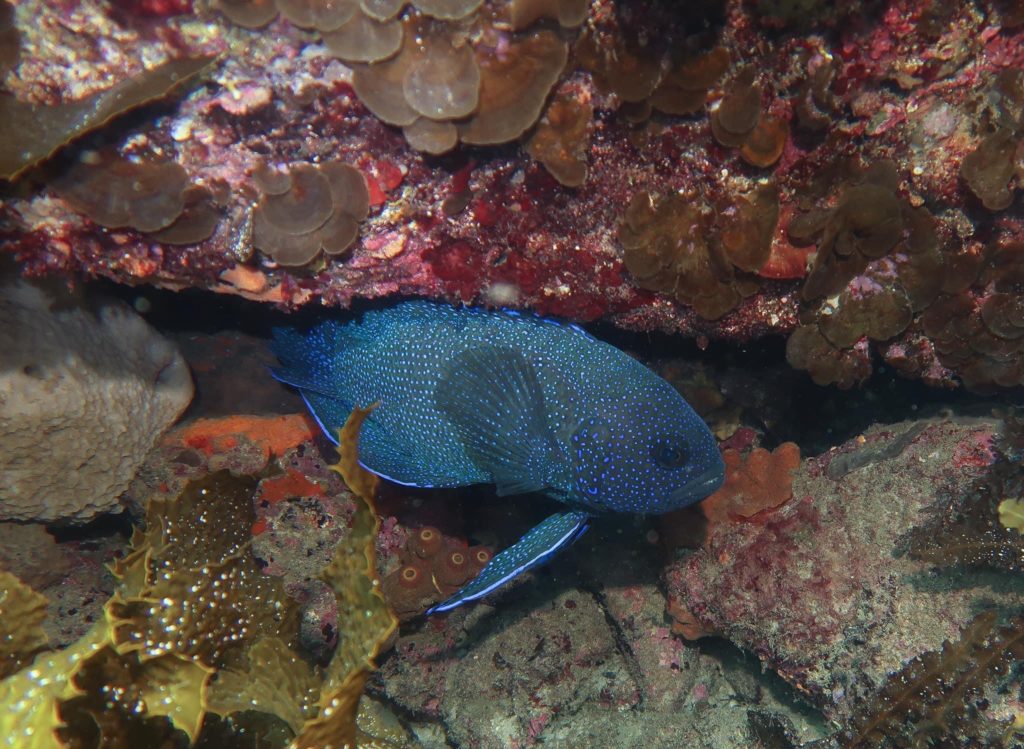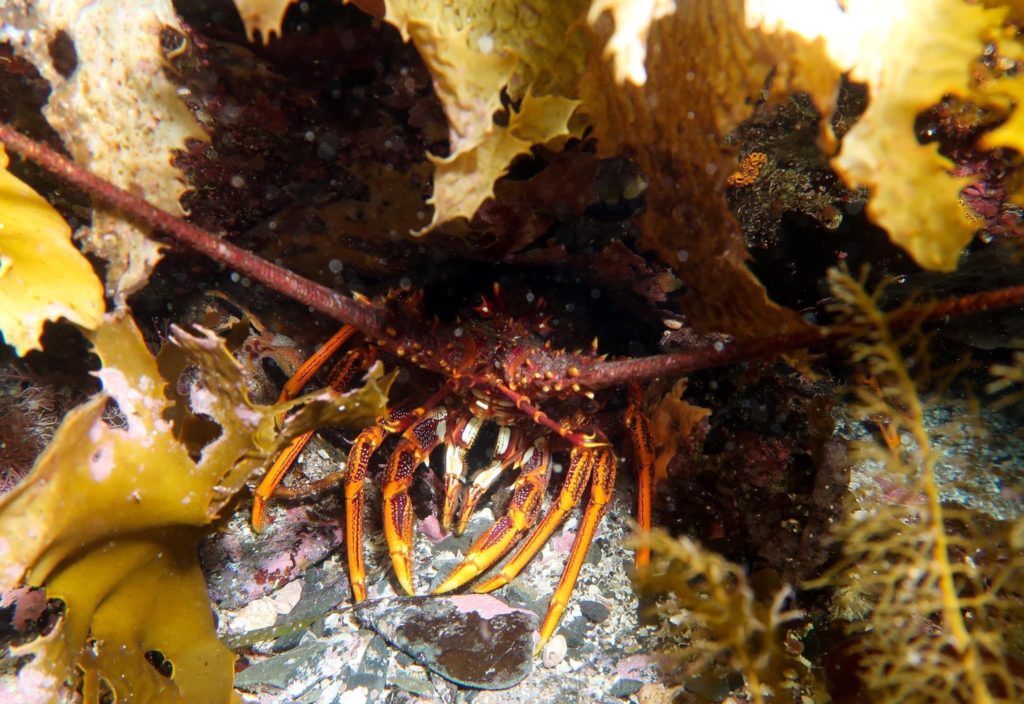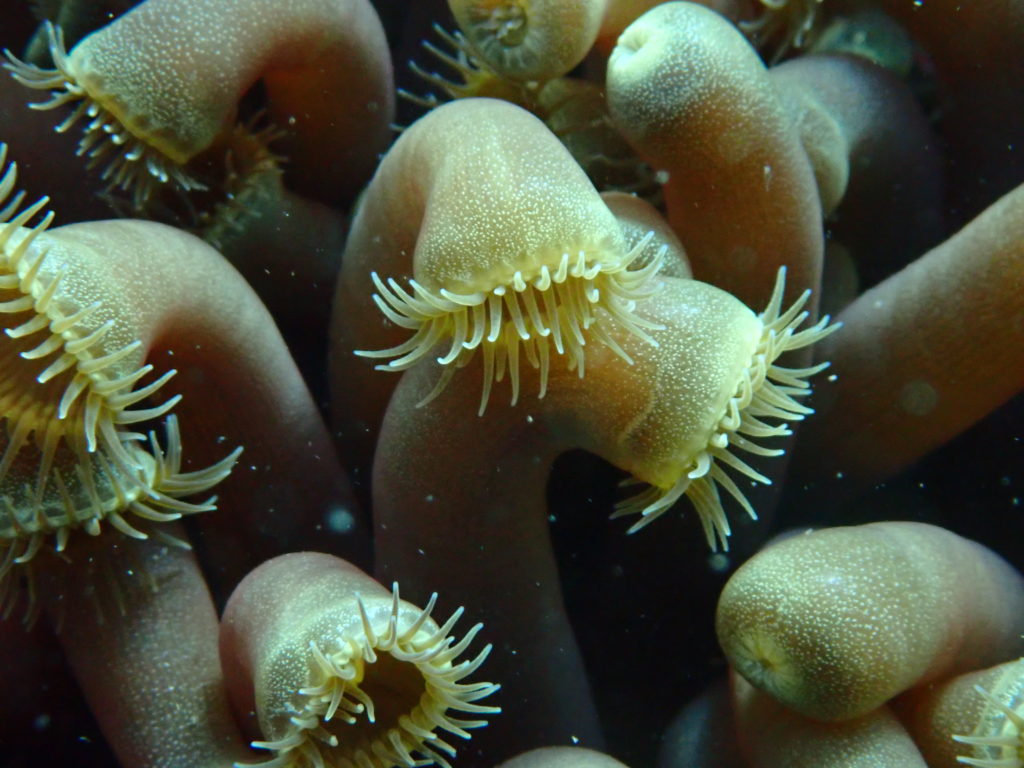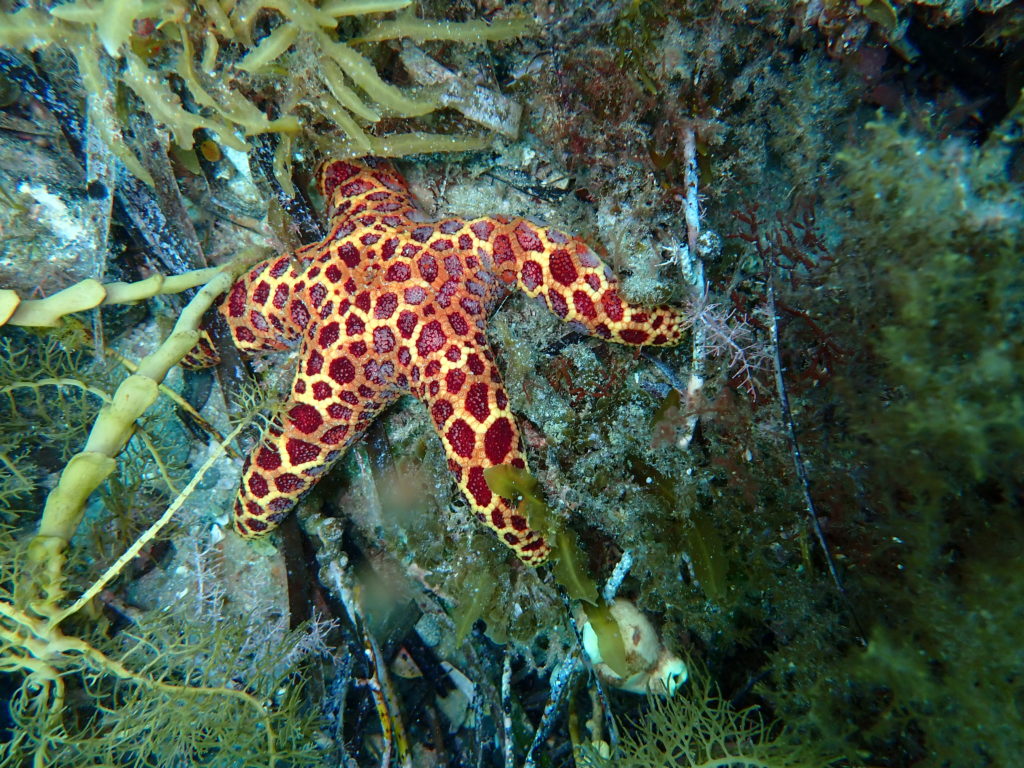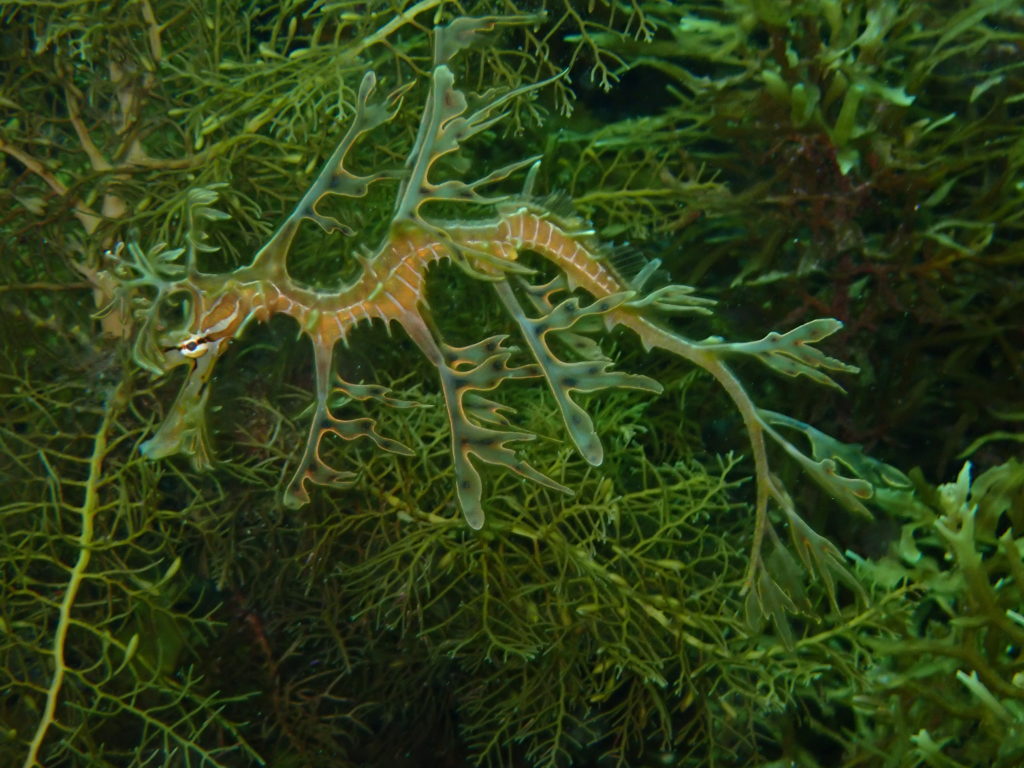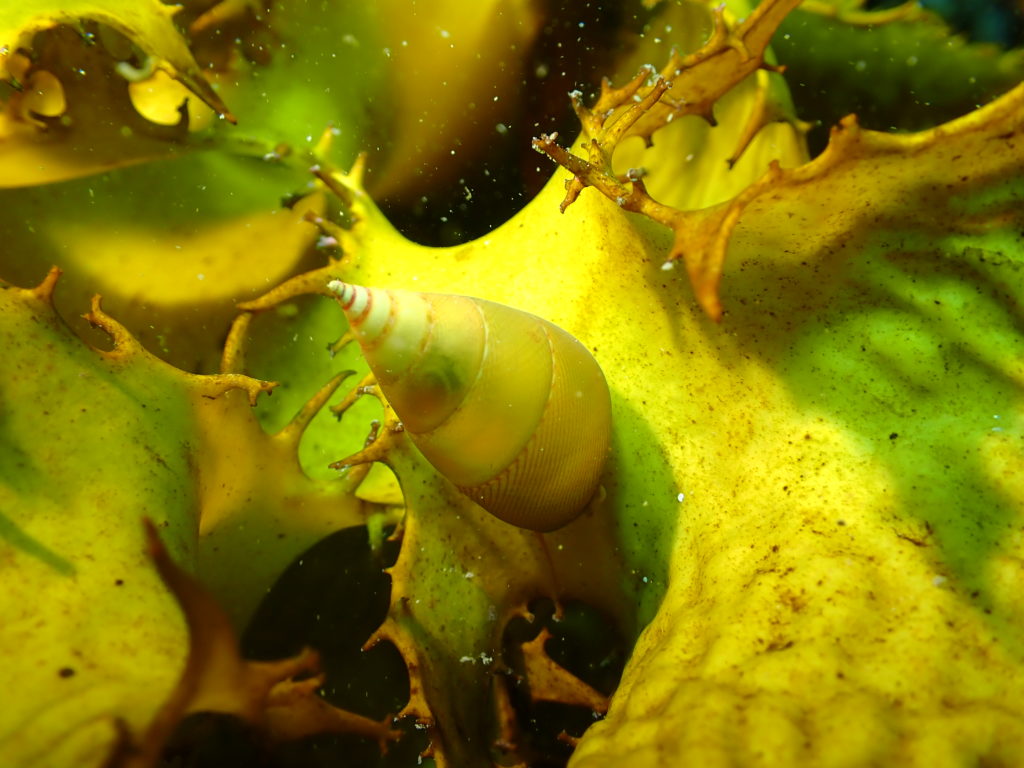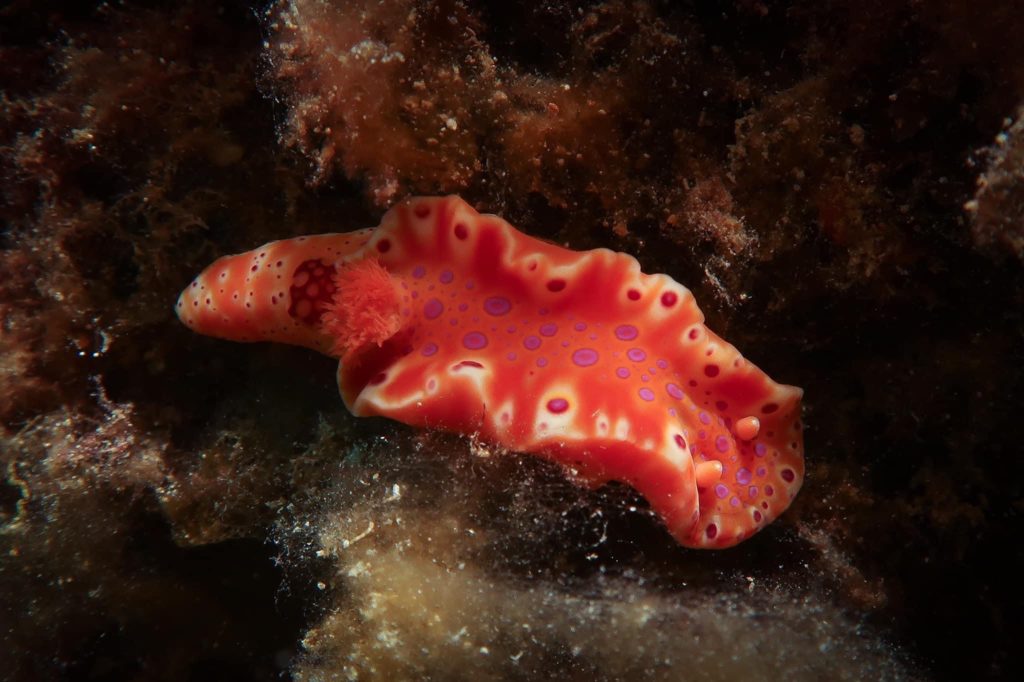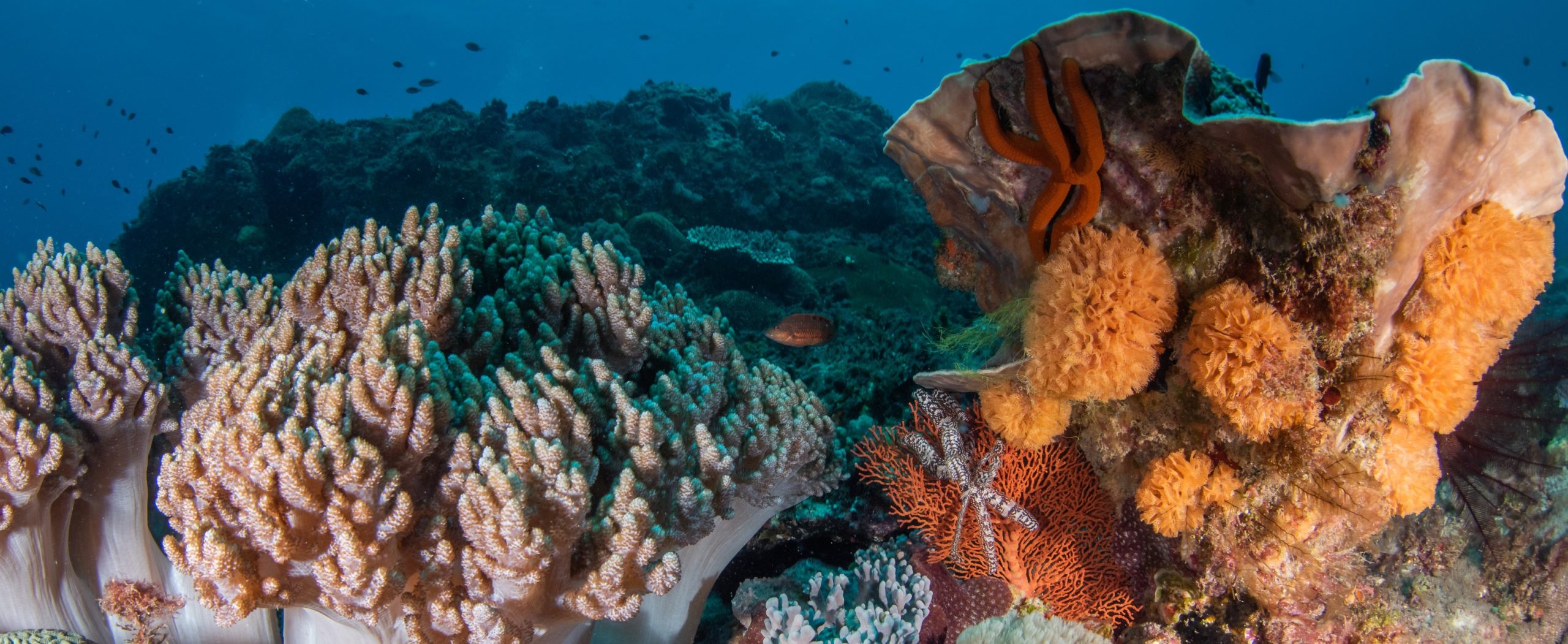South Australia’s annual Reef Life Survey Training trip is a highlight for RLS volunteer-divers in SA. The trip has been dubbed the RLS diver’s ‘boot camp,’ designed to give new volunteers the opportunity to be immersed in all things RLS, for an extended weekend of ‘Eat, Sleep, Dive, Repeat’! Each year, Newbies and Trainees get the opportunity to learn the RLS survey method by shadowing Trainers and Accredited divers on transect, whilst conducting surveys to collect the all important data! South Australian RLS coordinator Jamie Hicks, and RLS Trainer Danny Brock were accompanied by 8 enthusiastic divers(Alex Lea; Flora Jennifer; Fiona McQueen; Camille Mellin, Dan Easton; Kirrilee Stone; Oliver Petersen and Adrienne Gooden), ranging from newbies to accredited RLS volunteers. Great group dynamics made it feel more like a diving weekend away with friends than a boot camp, especially with Jamie’s excellent catering!
We were lucky enough to have calm seas and mostly blue skies with good visibility. The standout dives were the Pinnacles at Aldinga and the two sites at Second Valley - Lasseters Reef and Second Valley Boat Shed. Lasseter’s Reef is a large rock bommie a few hundred meters off Second Valley Beach and is a cryptic fish haven! The reef is covered in a thick stand of Golden Kelp, Ecklonia radiata and the rock itself is perforated with lots of nooks and crannies - great habitat for encountering the Western Blue devil, Pempheris meleagris and Southern Rock Lobster, Jasus edwardsii on transect. The thick and heavy Golden kelp made for a bit of an upper body workout doing the M2 search, but we were rewarded with many cryptic fish sightings including Warty Prowfish, Aetapcus maculatus and weedfish, Heteroclinus spp. Nearby at Second Valley we also saw a Leafy Seadragon, Phycodurus eques and more Port Jackson Shark Heterodontus portusjacksoni Eggs than we could count, wedged into the rocky reef for safekeeping.
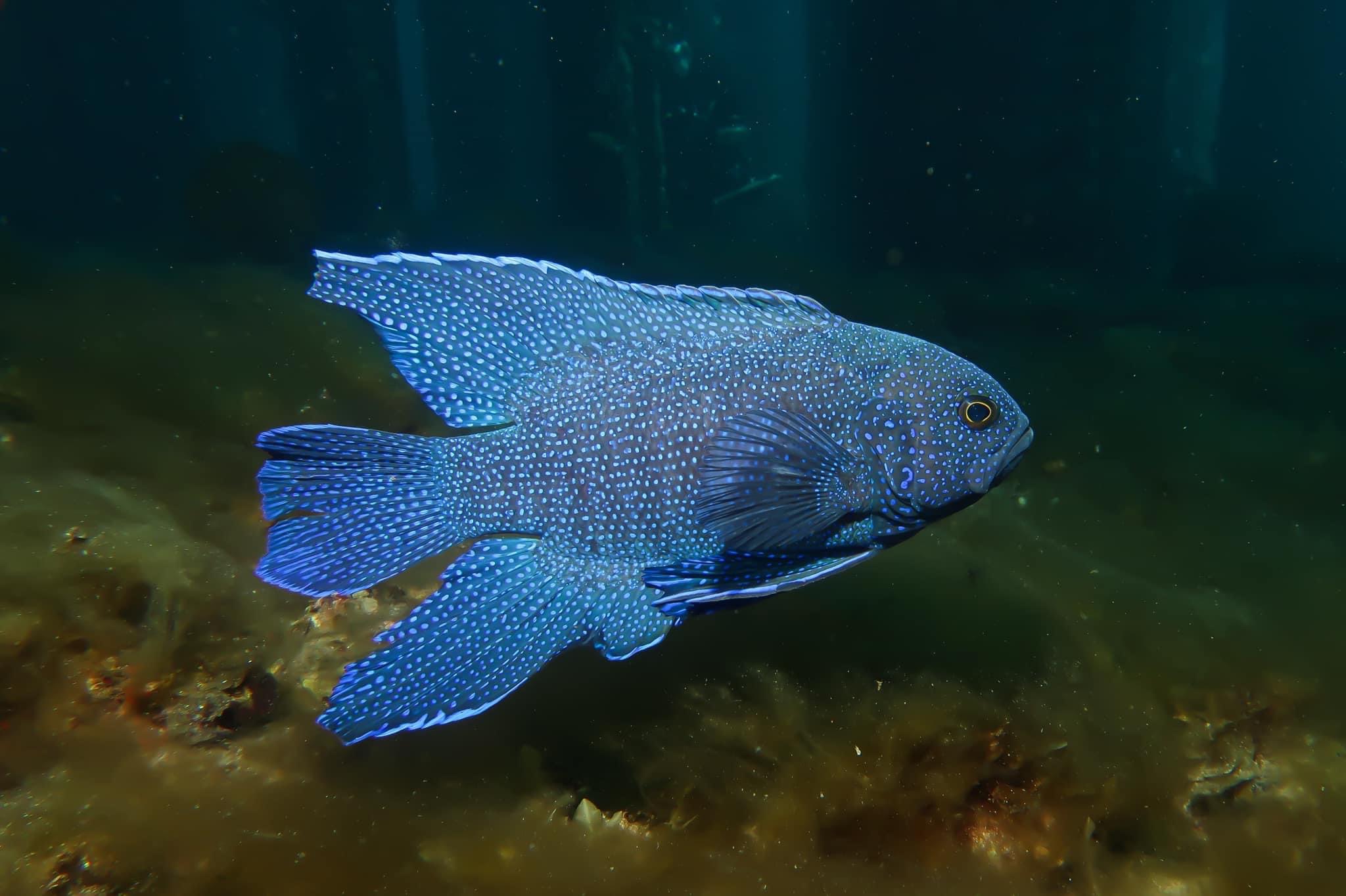
The Pinnacles at Aldinga is a spectacular dive site full of caves, swim-throughs and undercut edges, making for an interesting transect reel-out! The site is relatively exposed, making previous attempts to plan survey dives here unsuccessful. With a glass-out day on the water, divers were very excited to finally get to survey this reef with RLS. Aldinga Reef has been protected from fishing since the 1970’s, and is now classed as a Sanctuary Zone. Likely a result of this long-term protection, Aldinga Reef is the northernmost area of the gulf where the beautiful and charismatic Harlequin fish Othos dentex are reliably seen. We were lucky enough to see one on transect, along with schools of large Silver Drummer, Kyphosus sydneyanus, patrolling the reef and many Herring Cale, Olisthops cyanomelas speedily snaking their way through the Golden Kelp that dominates the upper reaches of this reef.
The other sites we surveyed from Rapid Bay to Morgan’s Beach are broadly quite similar, but have subtle variations to flora and fauna, influenced by the surrounding topography (Tall cliffs to Sandy beaches) and the location relative to Rapid Head Sanctuary Zone. Stand-out species from these dives include the Varied Catshark, Parascyllium variolatum, Goblinfish Glyptauchen panduratus, and a very old and dusty Coffin Ray; Hypnos monoptergius initially doing a very good impression of a rock, but thankfully recognised as an electric ray, so nobody had to experience any of the 200 volts it is capable of producing. We also had a very curious cuttlefish, Sepia apama, that took a liking to RLS trainer Danny Brock and his camera, following closely behind Danny the entire length of the 50m transect. The quieter dives saw us shift focus to the Echinoderms, debating both their magnificence, and who took the best photos of the very slow moving subjects.
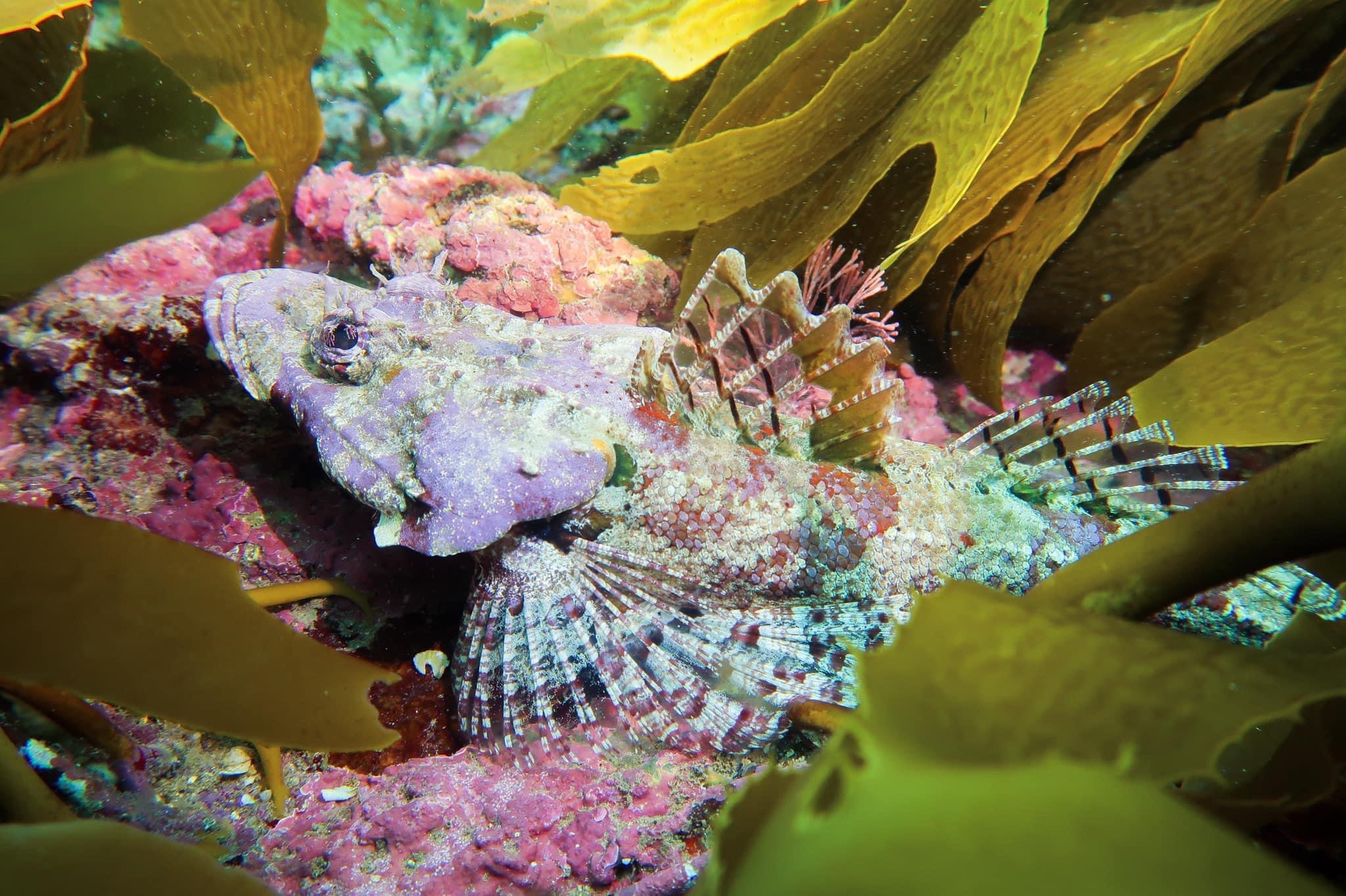
It was a great weekend, with the stars of the show being the amazing people involved. Many stories and so much knowledge was shared over the weekend, connecting us, and strengthening our passions for the marine environment with likeminded people. This year saw another team of major marine-life nerds, with the passion and persistence to learn and identify species - what RLS is all about. Two of our newest recruits, Oli Peterson and Adrienne Gooden, deserve a special mention for backing up their Honours thesis submissions by attending this RLS trip – now that’s dedication!
A big shout out goes to project sponsors Green Adelaide and the Department for Environment and Water plus the team at Underwater Sports Diving Centre for their ongoing support to the South Australian Chapter of RLS.
